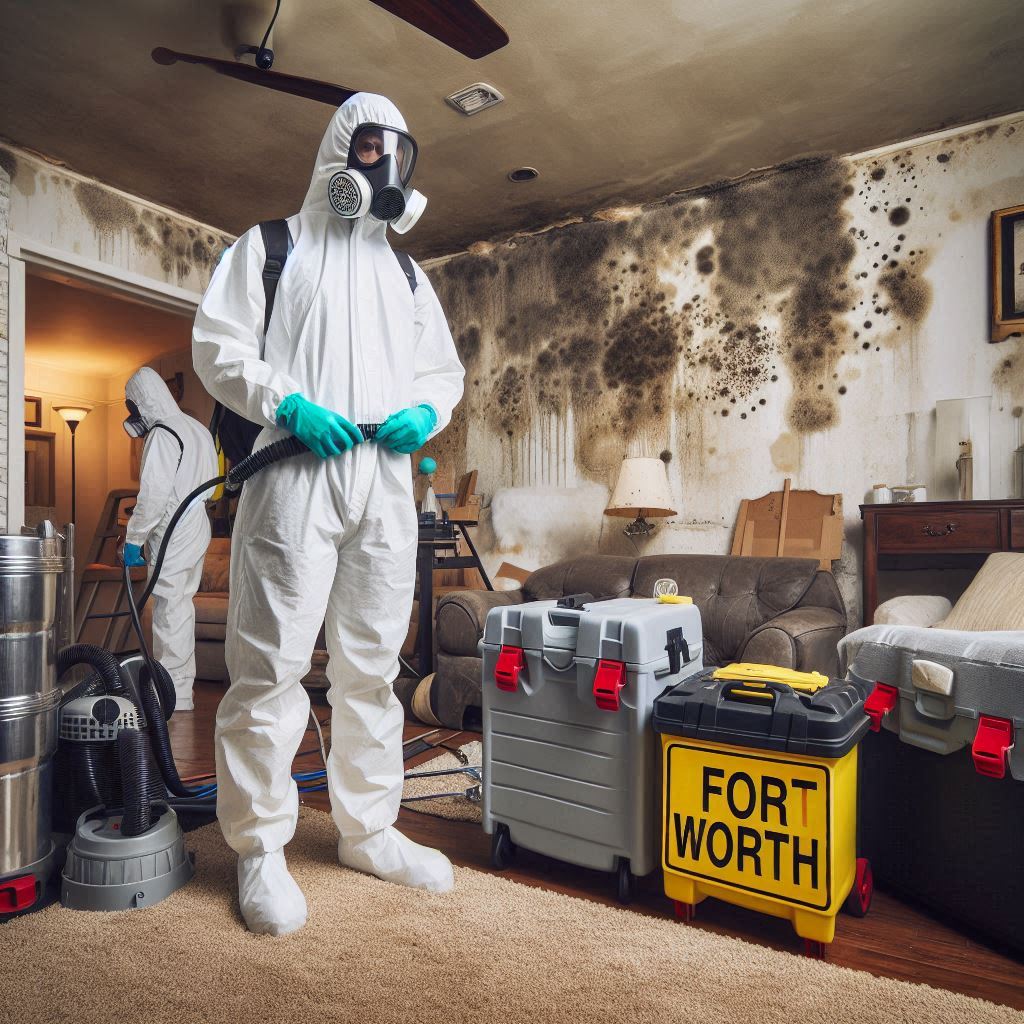Mold Remediation in Fort Worth: Protect Your Home from Mold

Mold remediation in Fort Worth is crucial for homeowners facing mold issues due to the area’s humidity and frequent rainfall. Mold growth can lead to structural damage and pose serious health risks, especially for those with allergies or respiratory conditions. This post will discuss the importance of mold remediation, how to detect mold, and steps to protect your home from future infestations.
Why Mold Remediation in Fort Worth Matters
The humid climate in Fort Worth creates ideal conditions for mold to thrive. From small patches to extensive infestations, mold can damage drywall, flooring, and insulation. Early intervention with professional mold remediation is essential to prevent significant damage and safeguard the health of your family.
Mold remediation in Fort Worth helps ensure that your home remains a safe and healthy environment. Whether you’re dealing with visible mold or a persistent musty smell, seeking professional help is the best course of action.
Signs You Need Mold Remediation
It’s not always easy to detect mold. Mold often hides behind walls, under carpets, or in less frequented areas of the home, such as attics and basements. Here are some key signs to look out for:
Musty odors: A lingering musty smell, especially in damp areas like bathrooms or basements, could indicate mold.
Visible mold: If you notice green, black, or white spots on walls, ceilings, or floors, it’s likely mold.
Water damage: Leaks or flooding can lead to mold growth within 24 to 48 hours.
Health issues: Symptoms such as coughing, sneezing, and respiratory problems may be related to mold exposure.
The Mold Remediation Process
Mold remediation is a multi-step process to ensure all mold is thoroughly removed and the environment is treated to prevent future growth.
Inspection and assessment: A thorough inspection identifies the extent of the mold problem and the source of moisture causing it.
Containment: The affected area is sealed off to prevent mold spores from spreading to other parts of the home.
Air filtration: HEPA filters are used to capture airborne mold spores and improve indoor air quality.
Mold removal: Professional-grade cleaning agents and equipment are used to remove mold from surfaces like walls, floors, and ceilings.
Restoration: Damaged materials, such as drywall or insulation, may need to be replaced if mold damage is extensive.
How to Prevent Mold in Fort Worth Homes
Preventing mold starts with controlling moisture in your home. Here are some ways to reduce the risk of mold growth:
Fix leaks immediately: Water from leaking pipes, roofs, or windows should be addressed as soon as possible to prevent moisture buildup.
Ventilate rooms: Proper ventilation in kitchens, bathrooms, and laundry rooms can help reduce humidity.
Use dehumidifiers: In particularly humid areas like Fort Worth, using a dehumidifier can keep indoor humidity levels below 50%.
Check gutters: Keep gutters clear of debris to avoid water buildup around your home’s foundation.
For more detailed guidance on mold prevention and professional remediation services, visit our Fort Worth mold remediation page.
For more information on the health effects of mold exposure, the CDC’s mold guidelines provide essential insights.
Conclusion
Mold remediation in Fort Worth is essential to maintaining a healthy and safe home. Whether you’re dealing with a small mold issue or a widespread infestation, professional remediation services can ensure that your home is protected from the damaging effects of mold. Be proactive, and take the necessary steps to keep your home mold-free.